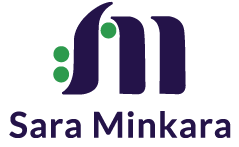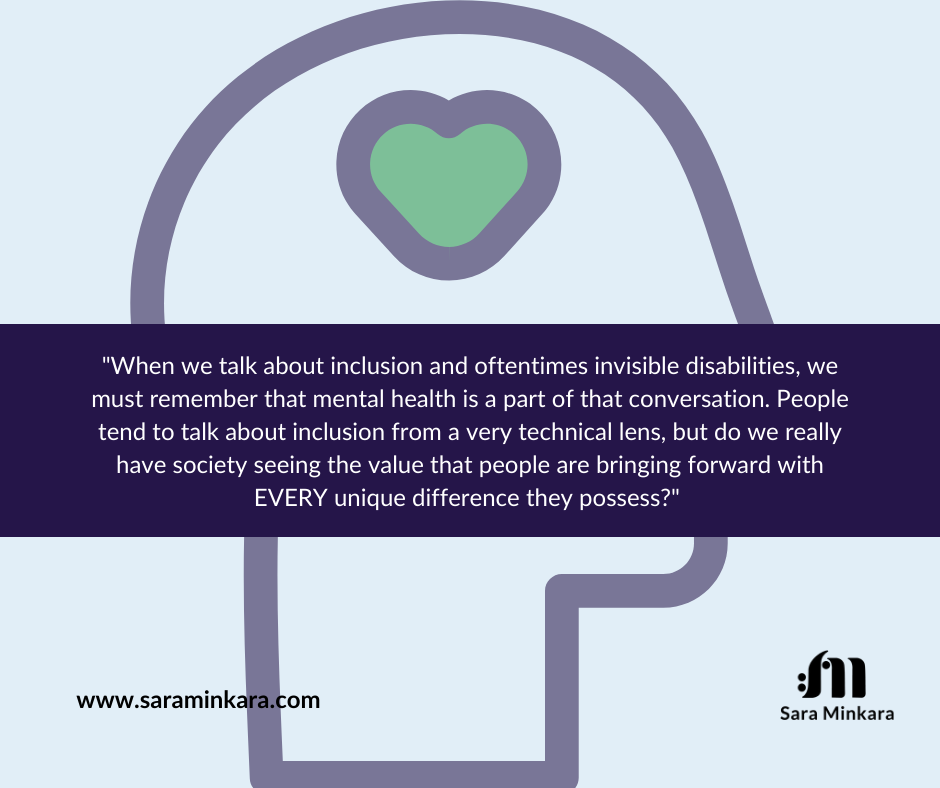Mental Health Inclusion
8 million people die every year due to mental illness. This is roughly one every four minutes.
This past month, my staff has shared their experiences on mental health in honor of May being Mental Health Awareness Month, and I am incredibly proud of each of them for having the courage to open up and shed light on this important topic. Each of my team members are unique and I embrace the differences we each have. People’s experiences are like fingerprints, each line comes with varying grooves leaving each person with a unique imprint. Their experiences make them who they are, and I wouldn’t have it any other way.
When we talk about inclusion and oftentimes invisible disabilities, we must remember that mental health is a part of that conversation. People tend to talk about inclusion from a very technical lens, but do we really have society seeing the value that people are bringing forward with EVERY unique difference they possess?
While facilitating the Discovery In The Dark workshops, many participants have expressed that they have mental health issues, but fear how their co-workers or society will perceive them. They are challenged on if they should open up, when they should share this information, or if sharing it at all would do anything but hurt them. Individuals should never have to face this fear.
If you had a physical disability or life threatening illness, and a treatment would impact your work schedule, you would tell your boss. Why should your mental health be treated any differently?
Why should individuals who live with mental health issues suffer in silence, or worse yet, the 8 million people who die annually not seek treatment that could save their lives?
If someone has depression or anxiety and they are struggling at work, what do you think happens if they feel like they cannot express that they have mental illness? It may manifest in their productivity, and their coworkers may assume the individual is just slacking. If the team member worked in a safe space and felt there wouldn’t be judgement, they might feel more inclined to share the challenges they are facing before it becomes a larger issue and accommodations could be made or systems could be put into place to help that person thrive.
True inclusivity is creating spaces that allow people to bring their truest selves forward.
There is a clear difference between advocating for inclusion and actually seeing the value that inclusion brings. Far too often, people with mental health issues are pushed to the side because the process of accommodation seems to be too daunting. If you come from a place of compassion and truly envision what that person brings to the table, you will be left with far more than you anticipated.
The Discovery in the Dark programs are designed to do just that. I truly believe every single person has something beautiful to offer. Society as a whole just has to be willing to provide people the space to bring that value forward.
Mental health illnesses do not have a “one size fits all” solution. They have different treads and cadences, and each person copes differently. You’re not required to tell your peers or coworkers about your struggles with mental health, but you should always feel like you have the option to.
Visit the link below for tips on how to share your mental health struggles with your coworkers:
https://www.bridgestorecovery.com/blog/mental-health-in-the-workplace-what-to-say-to-your-boss-about-your-treatment-plan/


